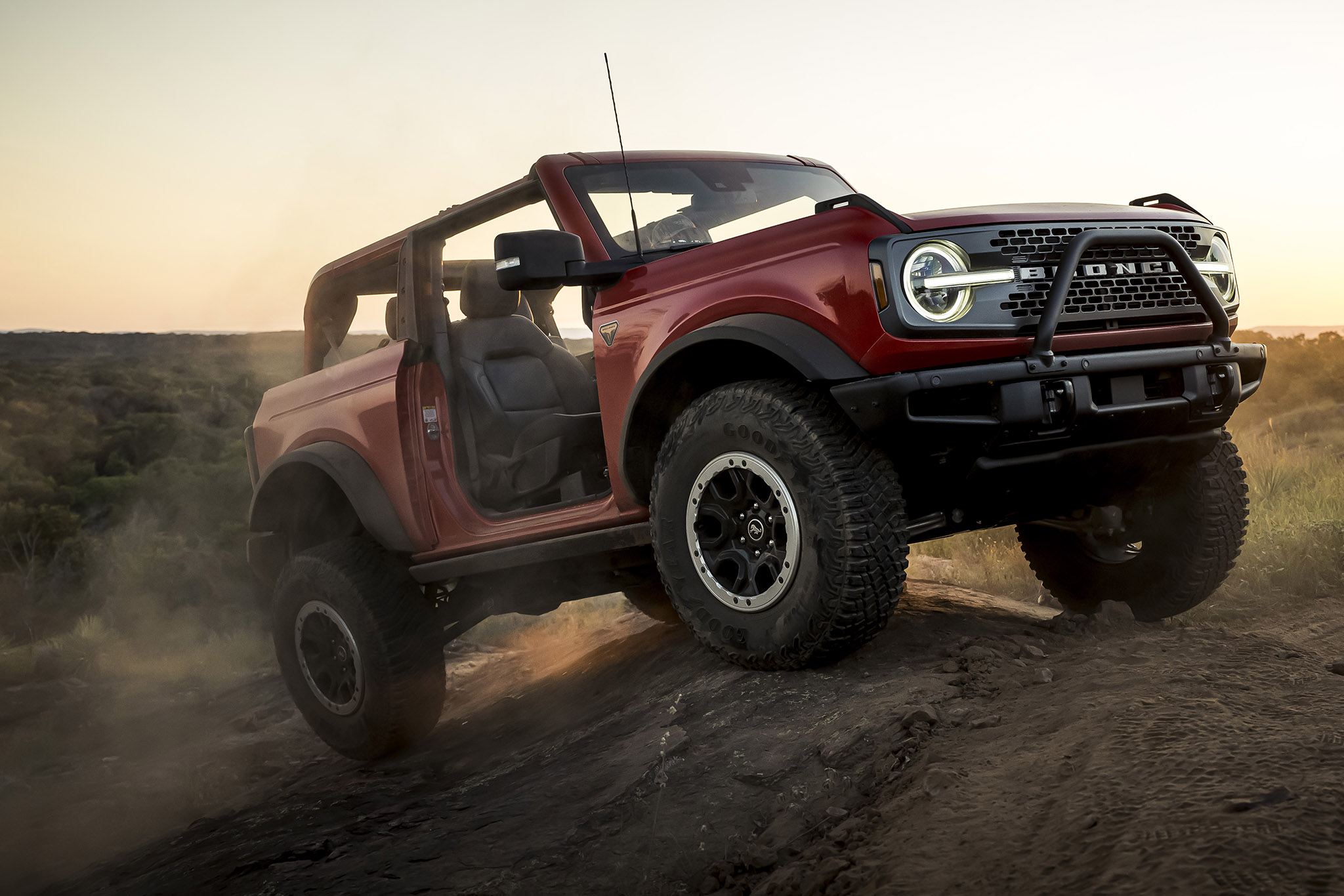The 2021 Ford Bronco competes with the Jeep Wrangler in a plethora of ways—doors off, roof off, manual transmission, off-road heroics, boxy looks—but as far as I can immediately tell, it beats the Wrangler in one major way: The freaking wing mirrors stay on when you take the doors off!
The process of putting the mirrors on the body instead of on the doors like everyone else does was not a simple one, according to the Bronco’s chief designer, Paul Wraith. There were a lot of things to consider—but ultimately, I do think it was the right call.
Last summer, I reviewed a Jeep Gladiator and thought I’d take the doors off for fun. As soon as I started driving, I quickly learned—as all my Wrangler and Gladiator readers likely know already—I had no more wing mirrors to rely on since they come off with the doors. It was very frustrating and I didn’t think it was the safest design out there, either. Wing mirrors are extremely handy! Of course, you can always buy a set separate of wing mirrors and put them on yourself when you go doorless, but that seems like a solution you’re on the hook for to a problem of Jeep’s own making.
When you take the doors off the new Bronco, not only are they far smaller and more compact due to their frameless design, but you also leave the wing mirrors behind, as they are body-mounted and not door-mounted. (For a how-to guide on how to remove the doors, click here!) Outside of the attractive fender mirrors on vintage cars, I can’t really think of any other modern vehicle that has body-mounted mirrors except for, like, the Ferrari Enzo.
But for Wraith and his team, it wasn’t just a matter of deciding to move the mirrors one day and then doing it. To put it plainly, it was very damn hard. Lots of stuff had to be considered in a process that sounded like a non-stop domino-effect. “It was one of the most complicated parts of the vehicle,” Wraith told me during the Bronco’s media preview event last week. As it turns out, the base of the A-pillar is a really hot area for many things to come together. “We found in the design process everything is arguing for attention,” Wraith said, listing them off. “The A-pillar structure, the airbag, visibility of the mirror, the air vents. Everything is jostling for position.”


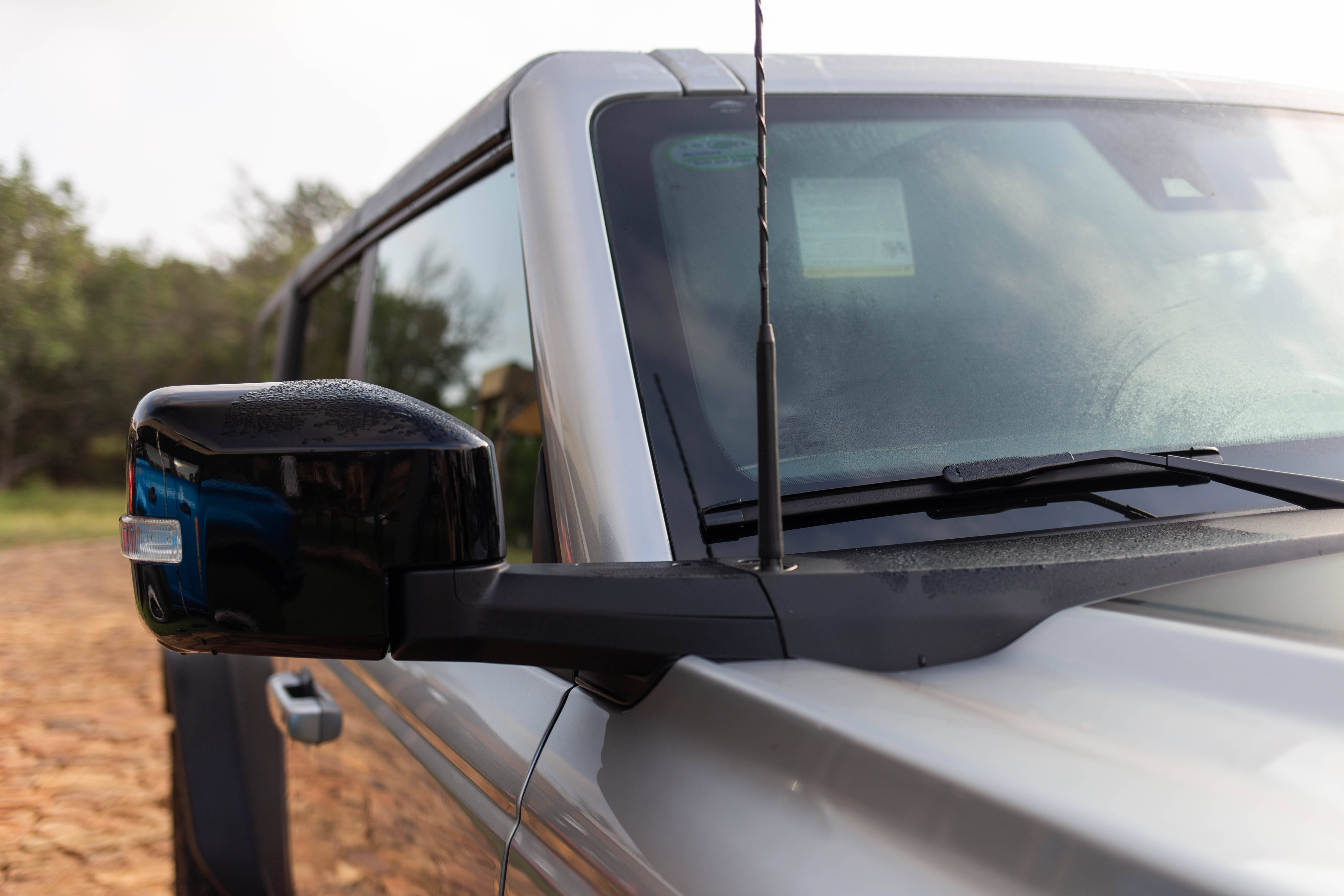
Since designers wanted to keep the retro, horizontal element throughout the instrument panel—like you’d see in the original Bronco—they also needed to put the grab handles in very specific places that first, did not block the driver’s view when someone was holding onto them and second, still allowed clear air flow from the air vents. But this, of course, affected the mirror.
“Every time we introduced an element which was there for good reason—like the grab handle, the architecture of the instrument panel, or the airbag placement—it started to argue with the mirror and mirror spacing again,” Wraith said. It seems like the team would make one improvement just to create another separate problem.
Then there was the shape and placement of the mirrors themselves. As a driver looking across the vehicle, you have to be able to see the mirror, but that mirror also has to reflect your view down the road behind you, which is federally mandated.

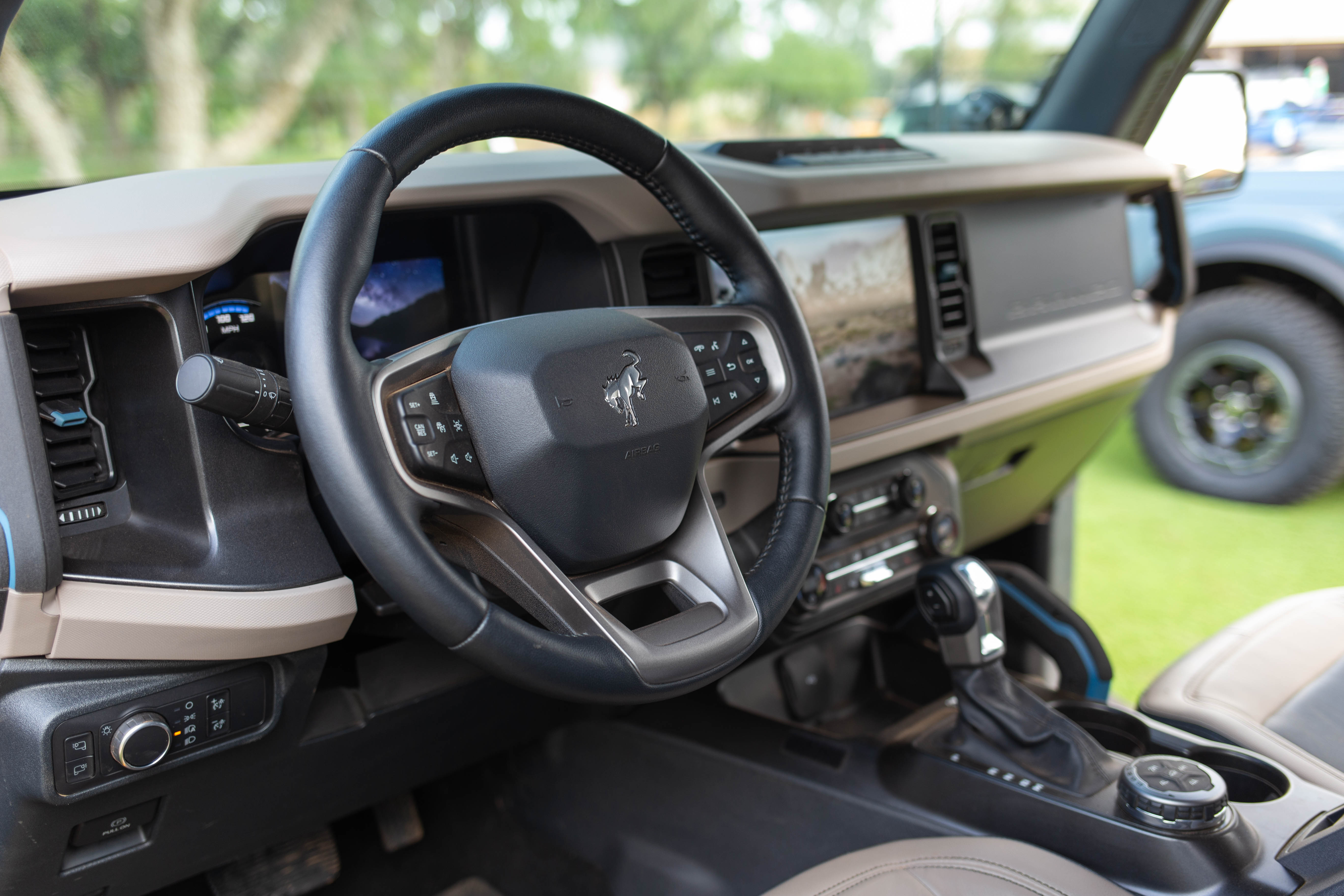

“Whenever you move the mirror itself, everything changes around it,” Wraith said. “This is the ebb and flow, constantly, of what’s going on. So the mirror needs to move (in a product development sense) three-dimensionally. The further forward and out you move it, the more the mirror lens changes. [Simultaneously], the mirror housing itself has manufacturing tolerances to it. Those are constantly adjusting and once those change, that changes the size of the mirror.”
On top of everything else, the removable doors have to clear the mirrors as well, so special attention was paid to how the doors swing out. But the doors also have to open wide enough to accommodate people of all shapes and sizes, which the designers managed to pull off. If you ever get a chance to pull open a Bronco’s doors, you’ll see they clear the fixed wing mirrors just so.
The easiest solution, of course, would have simply been to move the mirror further back and likely onto the door itself. If a designer did that, they could skip over all the stresses of the required criteria, like accounting for the structure of the A-pillar and the air vents. “Doing what we did just made everything more difficult,” Wraith said.
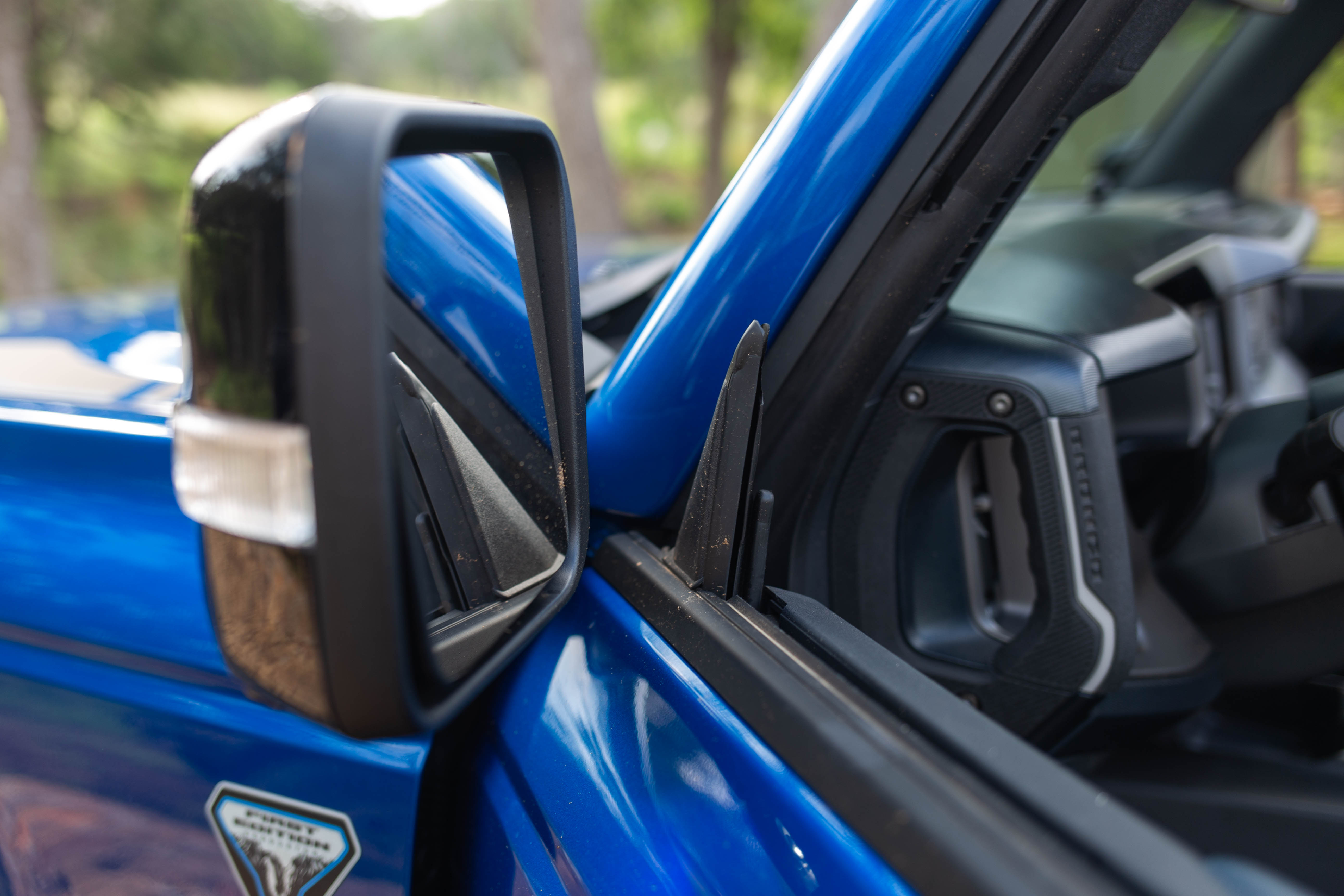

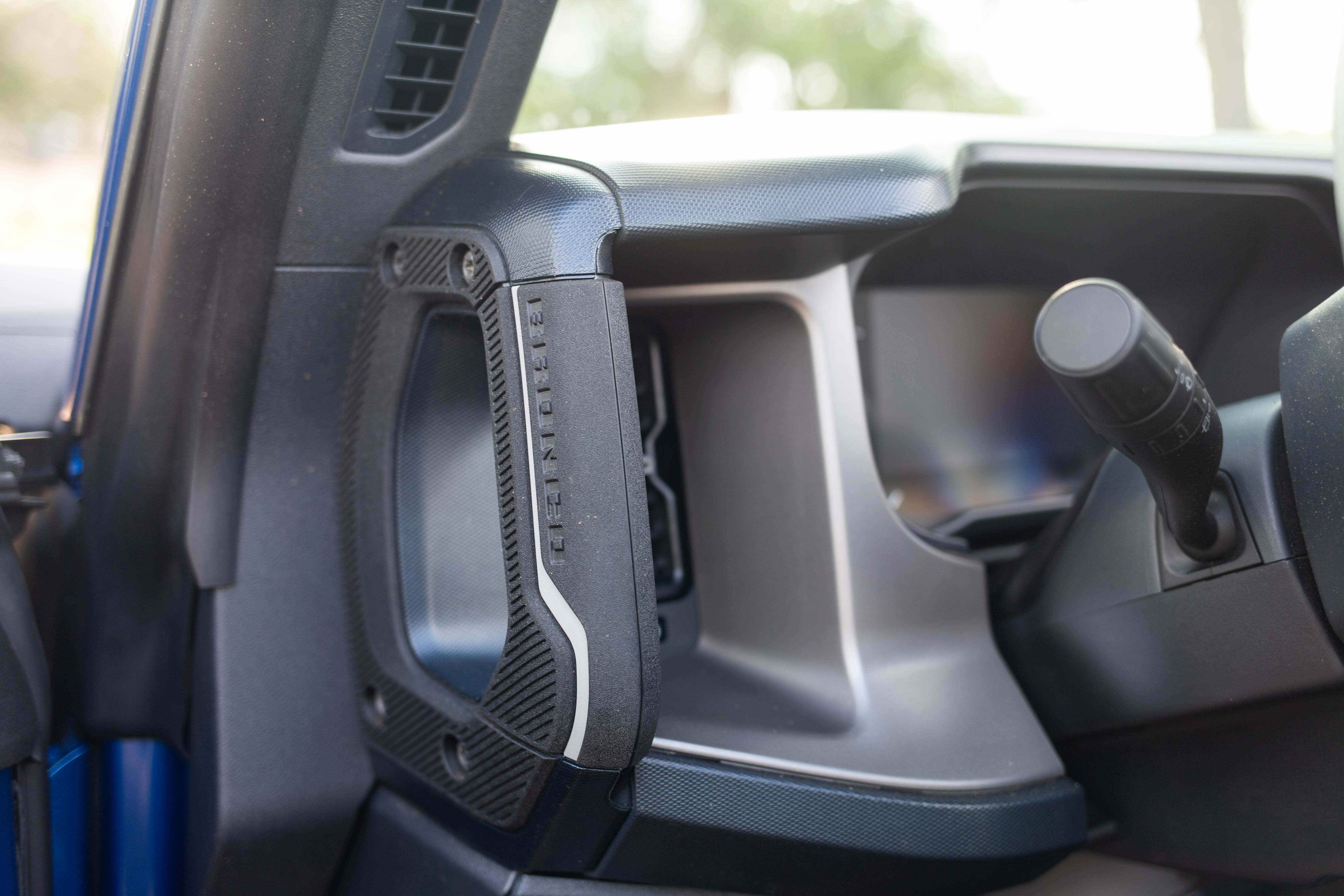

He went on, “In my career, I’ve not often been in a situation where for a long, long time we’re thinking, ‘We’re not sure we can make this work.’ The only answer is to just keep going with it because this is such a critical feature. It’s weird that something so noticeable and unique to the vehicle should come down to something as finite as an interference between an air [vent], a grab-handle, and the manufacturing tolerances of a mirror, its position relative to the driver’s eye point, and the legal viewing angle of the road back behind it.”
Personally, I’m glad Wraith and his team persevered. The new Bronco’s wing mirrors are but a small detail within the sea of everything else the truck is capable of, but it’s one of the more practical and thoughtful ones. If you haven’t already, check out our first drive review here!
Want to reach out? Hit me up at kr*****@th******.com.
Read our previous article: 2022 Honda Civic Si Canadian Features Review
